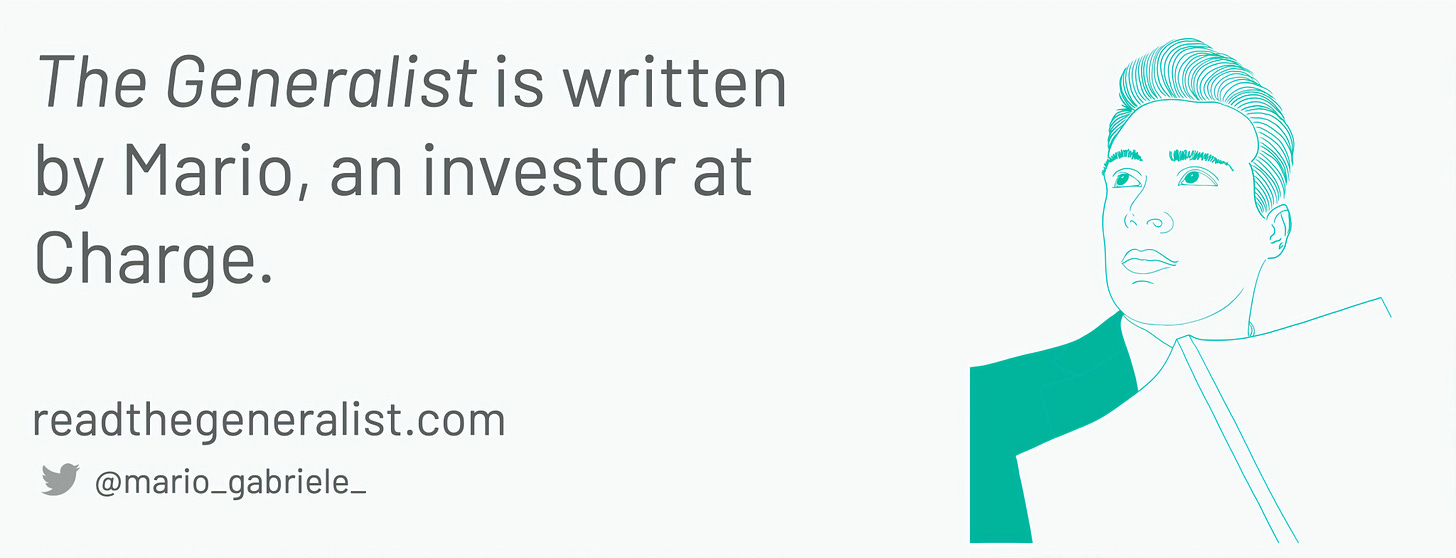Dopamine Games
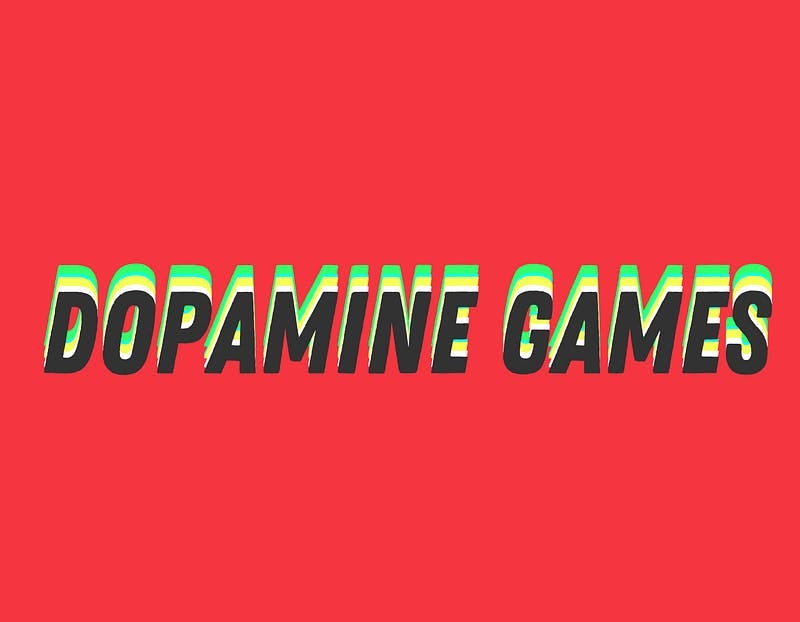
Editor's letter: The Inescapability of Dopamine Games
As a child, I fell into a bad habit. Or rather, a series of them.
I washed my hands, then washed them again. I turned on the lights, then off, then on. I walked into a room, backed out of it, walked in again. Sometimes, I would find myself stuck in one of these loops for hours at a time. I would stand at the threshold of my bedroom, turning the lights on and off, hoping no one would discover what I was doing.
Sixteen. On, off. Seventeen. On, off. Eighteen.
When the number did not feel right, when the repetition did not give my mind the sense of reassurance it was seeking, I could only continue.
Nineteen. On, off. Twenty.
For a long time, I referred to these habits only as my "stuff," a series of rituals that, as a seven-year-old, I used to govern and protect the world as I knew it. To keep my family safe from harm, to guard myself against ill-health or bad luck, to avoid disaster of one kind or another, I had to finish the sequence. Even though I knew, on some level, that what I did had no effect on the things that worried me — this was a godless liturgy — I couldn't stop myself. After all, if catastrophe is a possibility, isn't every form of mitigation worth trying?
What I called my "stuff" was, of course, obsessive-compulsive disorder, a cognitive wrinkle I spent the better part of my twenties trying to iron out. One of the strange things about OCD is its relationship with dopamine. The neurotransmitter is associated with feelings of euphoria, and its ability to create habits. More specifically, dopamine produced in the ventral tegmental area (VTA) teaches us when to expect rewards, reinforcing pleasurable behaviors. From an evolutionary perspective, its goal is to encourage life-sustaining activities like eating, but it can be triggered by artificial means. Drugs and alcohol both produce dopamine, and its role in habit formation means it is a critical element of addiction.
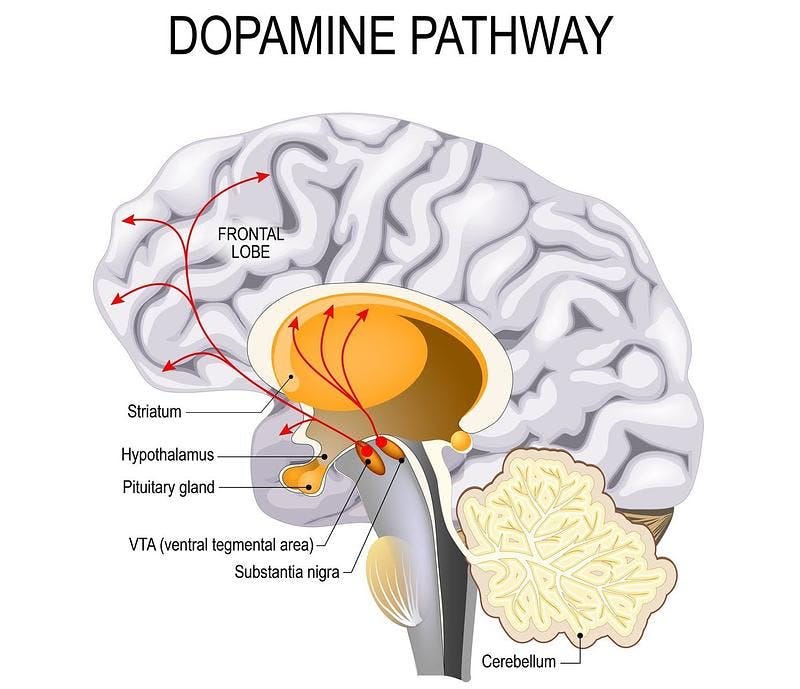
Curiously, OCD is alternatively believed to be associated with increased or decreased dopamine, which may not tell us much. What I remember of my compulsions was a surge of dopamine-esque satisfaction, of rightness, that was short-lived and possessing of a brutal half-life. Returns diminished with each repetition, and yet I was hooked.
Over the past few weeks, I am increasingly brought back to that sensation. Not through any battles of my own — I am fortunately far from such days — but because of that drug, dopamine, and its role in almost every aspect of our digital lives.
In his book, Finite and Infinite Games, James Carse delineates between the "games" that fill our lives. Finite games are those with discrete beginnings and endings, contrived to produce "winners" and "losers." Finite players are those focused on winning such games, on conquering opponents and receiving the titles that winning such games bestow. To win the title of "lawyer," one must win the game of law school. To win the title of "husband," one must win the game of finding a spouse. Each involves defeating opponents and surmounting challenges. Though we often think such contests are mandatory, we may leave finite games whenever we like, shedding jobs, relationships, conceptions of self.
Infinite games, by contrast, gesture in an altogether different direction. The goal is not subjugation of others but conversation, interaction. There are no rules, no boundaries, no set number of players. As Carse notes, "A finite game is played for the purpose of winning, an infinite game for the purpose of continuing the play." Art, life, love, these are infinite games if played correctly. There is no "winner" of music, no "champion" of love.
There is a third type of game. Or perhaps, a subcategory, that is seeping into our lives: the dopamine game.
Dopamine games govern our lives online. And though finite in scope, they dream of infinity. They are engineered to last as long as possible, hijacking our neurochemistry to prolong play.
The quintessential dopamine game is, of course, social media. But to think it is limited to the industry is narrow-minded. Dopamine games are ingrained across the internet.
One example has garnered particular attention this past week: Robinhood. The suicide of Alex Kearns, a 20-year-old user deeply in debt, has prompted an interrogation of the app's gamified UX, and addictiveness. Scott Galloway spoke of the "colorful Candy Crush interface." What I recall is the company's messaging in launching its cryptocurrency exchange: "Don't Sleep." The accompanying screenshots showed a Bladerunner-esque world of vivid color, seductive vitality.
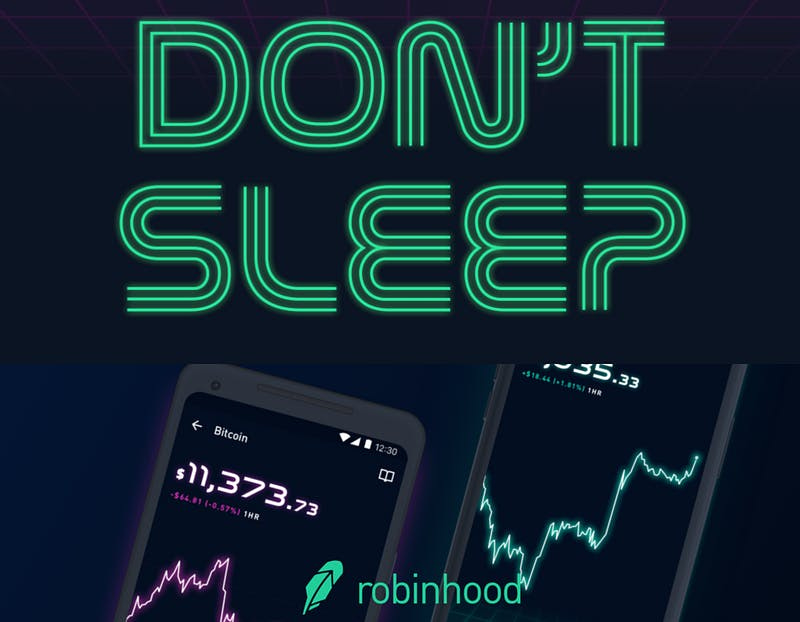
Like social media, Robinhood is not alone in its guilt.
Other high-profile examples include Superhuman with its gamification of email output, Tinder with its love-sport, Uber and Lyft with their relentless wringing of time from drivers. All are dopamine games, driving users to compete for tokens and trophies, bonuses and bragging rights.
Even focusing on these companies is too limited. Each is its own world, and the truth is that dopamine games do not have boundaries. They chase us across the internet.
Intercom, with its cheery conversational pop-ups is a dopamine game. Grammarly, alternately censuring and praising, is another. Thanks to tools like Hotjar, Mixpanel, Heap, Looker and others, every site can engineer itself into a dopamine game with enough time and capital. These platforms have birthed a culture of optimizing for metrics like "time on site," irrespective of how that relates to a user's ability to achieve their stated goal. A canonical example is Facebook's introduction of the newsfeed in 2016. Despite users expressing hatred for it, they ended up spending more time on the platform. The newsfeed stayed.
The point is not to single out these companies or their tactics. Every builder of pixel and bits, whether they are crafting an email client or a dating app, faces the same dilemma: treat users with uncommon goodness and court failure, or exploit the vulnerabilities of the human mind and improve the chance of success.
This is no choice.
The genie cannot be put back into the bottle, and winning territory in a digital world, winning attention — the scarcest of asset classes — requires every trick in the book. If your competitors use such ploys, it is suicide to equivocate. You must throw pop-ups on your website, beg for notifications to be turned on, default auto-play and auto-enroll, all for the chance to manipulate and beguile.
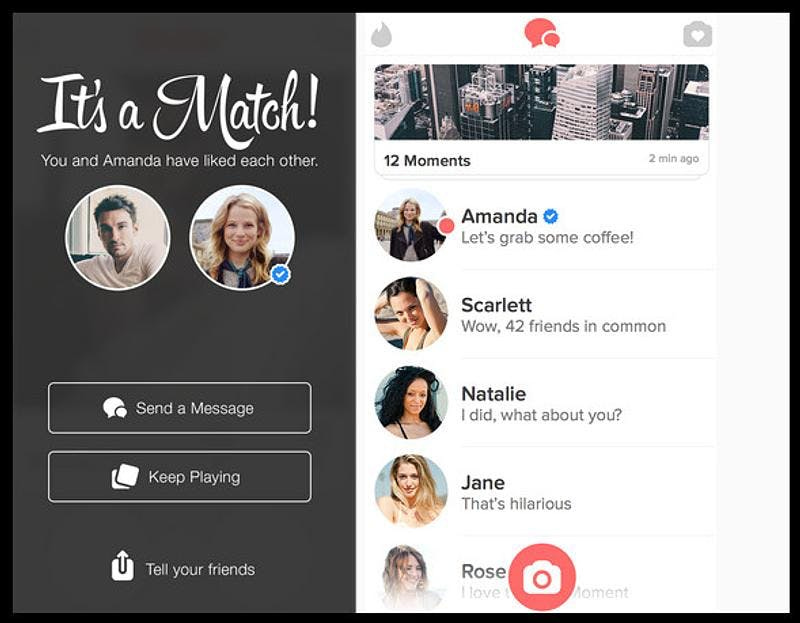
What is the effect of such omnipresence? How are we effected by the unavoidability of dopamine games?
William Gibson, the science fiction writer, depicted the effect of dependency well:
Addictions...started out like magical pets, pocket monsters. They did extraordinary tricks, showed you things you hadn't seen, were fun. But came, through some gradual dire alchemy, to make decisions for you. Eventually, they were making your most crucial life-decisions. And they were...less intelligent than goldfish.
Fundamentally, the pervasiveness of dopamine games impacts our decision making. Our collection of "magical pets" define our choices, whether we are trading on leverage, messaging a potential mate, watching a video, or responding to a colleague. We are living on tilt every time we open our laptops or turn on our phones, flooding ourselves with dopamine in a manner that was not possible in life before the internet.
The consequences are visible at a macro-scale, too.
We have a polarized electorate, driven to extremes by algorithms, a sub-caste of 1099s working harder than ever but struggling to make ends meet, and surging mental illness among the young.
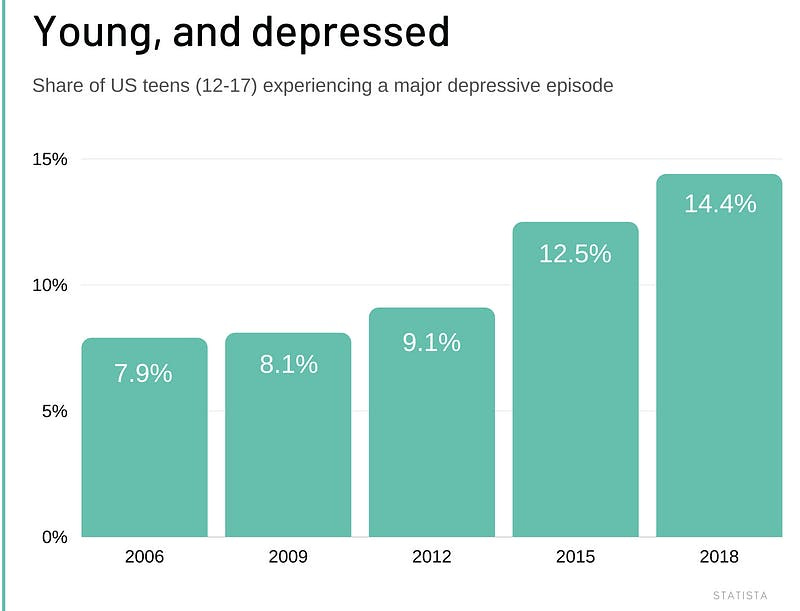
Further deleterious effects may lay ahead. The Medical University of Vienna argues that while too little dopamine is associated with Parkinson's disease, an excess of it may lead to mania, hallucinations, and even schizophrenia. What will a lifetime of excess do to us?
For all the pain it delivered, I am glad for my "stuff." In its ruthlessness, I believe I learned a certain endurance, a doggedness that has occasionally served me well. And if I have any originality of thought, some portion grew from spending more time than I should have locked in my head.
But I am glad I am not a child in today's world. When I think of the small boy standing in his socks, trying to solve the matter of the light switch, I do not feel optimistic about the effect technology would have had on his development. Would he have become more insular, shyer, more anxious?
I do not know. At least in his obsessiveness, in his compulsions, he would not be alone.
In other news...
The S-1 Club has been heads-down over the last two weeks. We'll be sharing our analysis of Lemonade's S-1 this Tuesday. If you'd like to be a part of the conversation, we have a few spots remaining in the group chat.
RFS 100 shared another ten ideas this week. A few that got an especially strong response: Figma for data, Lambda School for other vocations, and treatments for sleep apnea. We also announced a small group-chat, for founders and investors looking to discuss ideas. More info in the link below.
Previous Editor's Letters received additional coverage this week. "Compassion is the Enemy" was published in The Startup, while "Millennials Face Financial Ruin" ran in The Innovation.
Brief
Taleb on pasta
Zuckerberg feels the squeeze
Reforming America's police force may take more than body-cams
The 8-year-old edtech company picking up steam
Private astronauts, and China's Mars bid
Discord and the Boogaloo bois
Jobs at Initialized, Spark, and Stripe
The Victorian sewerman that found gold in the gutter
Some usual suspects count their winnings
Overheard
The three most harmful addictions are heroin, carbohydrates, and a monthly salary. — Nassim Nicholas Taleb
Good news
Hit in the pocket
Reconfirming he will undertake no good deed unless it impacts his bottom-line, Mark Zuckerberg announced changes to Facebook's platform on Friday. All posts discussing elections will now be labeled, with a link encouraging users to learn more. This came only after Hershey, Verizon, Coca Cola, and others decided to stop advertising on the platform. "There are no exceptions for politicians in any of the policies I'm announcing here today," Zuckerberg said, presumably imagining applause.
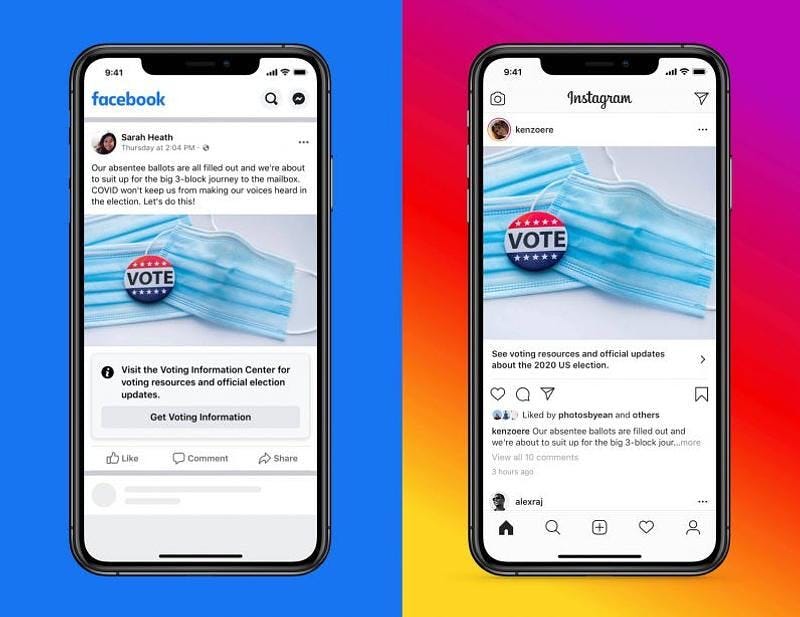
Face-off
This newsletter previously made a case for better regulation of the algorithms governing our lives, facial recognition very much included. With error rates of up to 98% and demonstrated biases against people of color, a set of federal standards is required before further rollout. That makes a bill, introduced by Senator Ed Markey, good news. The "Facial Recognition and Biometric Technology Moratorium Act of 2020" (catchy) would ban federal agencies from leveraging such systems, in addition to cutting off funding to police departments that didn't follow the same guidelines. The bill has gained support from civil rights groups, and Markey's fellow Democrats. Now, let's hope it gets passed.
1000 words
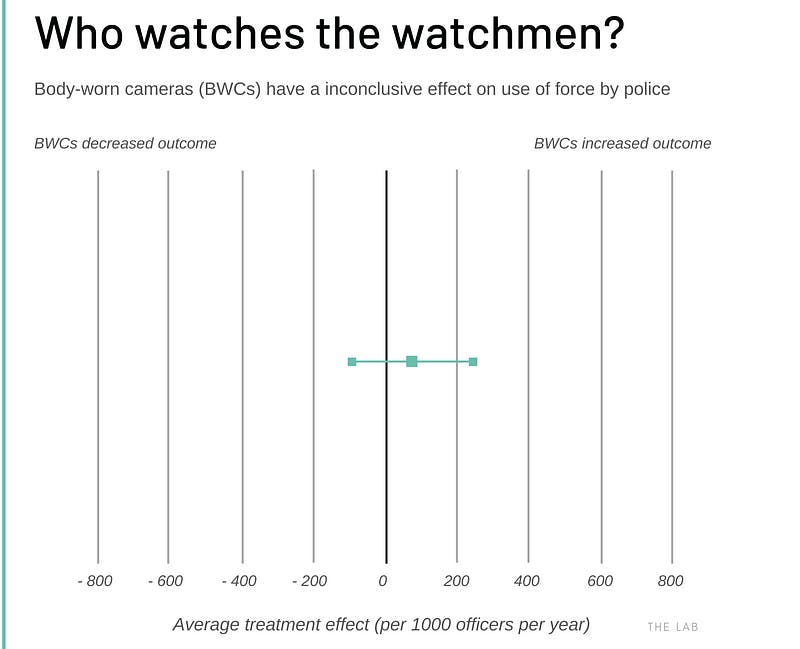
The past few weeks have seen the American republic reckon with the best ways to reform the police system. As of 2016, roughly 50% of the police force was equipped with "body-worn cameras" or BWCs. However, when considering what steps may be necessary, we will have to look beyond BWCs.
The city of Washington DC conducted an experiment between 2015 and 2016 that has resurfaced. For seven months, half of the Metropolitan Police were outfitted with BWCs. The other half were not. The results were inconclusive. Officers fitted with BWCs was estimated to use force 74 more times per annum than those without, though the margin of error spanned a reduction of 97 documented cases, up to an increase of 244 incidents. The effect of BWCs had a similarly muddled effect on complaints against police, and on eventual prosecutions.
Suggesting this is not a singular phenomenon, an analysis of 70 studies on the effect of BWCs was similarly equivocal. Technology is unlikely to be a silver bullet for so complex a matter.
Signal
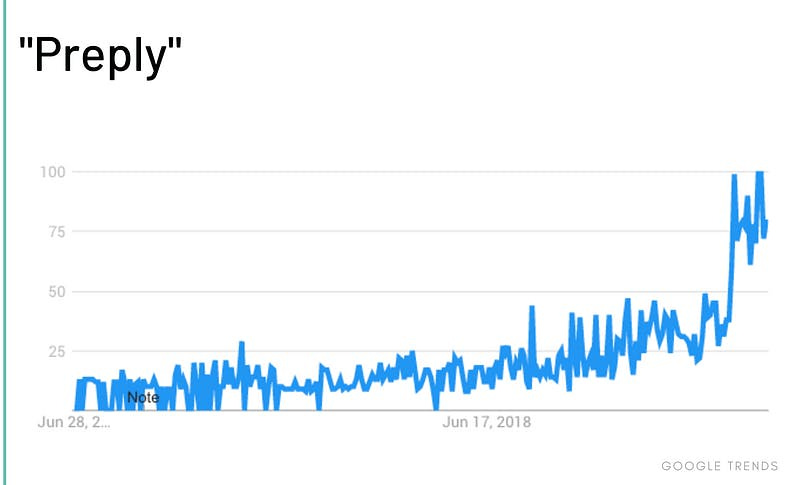
An online tutoring platform, founded in 2012, has found new life in lockdown. Preply, based in Brighton, Massachusetts, has seen a surge of interest starting mid-March. The company, that connects students learning a foreign language with teachers around the world, saw a record number of bookings and registrations at the start of quarantine.
Preply is not the only edtech company to benefit from the coronavirus. Teachable, a platform that helps educators monetize via online courses, has received a similar boost. The latter is a particularly valuable piece of infrastructure for the coming generation of "Superstar" teachers.
Long tail
Space school
The race to commercialize the cosmos continues apace. Virgin Galactic has reportedly teamed up with NASA to launch a "private orbital astronaut readiness program." Essentially, school for the next generation of cosmonauts, this time geared towards the private sector. It is worth noting that Virgin Galactic has, to date, sent only five people to space.
China hopes to land its "Quest for Heavenly Truth" on Mars. The mission launches in July. More here
Amazon snapped up self-driving company, Zoox, as it tries to land its autonomy moonshot. The $1.2B price tag was lower than the $3.2B valuation the company earned in its last funding round. More here
Pinduoduo, the Chinese e-commerce company, is "defying gravity" as it reaches a valuation of $101B, thanks to 130% growth over the last three months. More here
Gaming's #MeToo moment, again
Allegations of sexual harassment and abuse have roiled the games industry once again. Over the last few weeks, Twitch, Ubisoft, Facebook, Cards Against Humanity, and others, have had to answer accusations of abuse. Twitch's CEO, Emmett Shear, has promised to take claims seriously, while the CEO of Cards Against Humanity stood down after reportedly breeding a sexist and racist office culture.
Lack of oversight during lockdown presents a particular challenge for both perpetrators and sufferers of domestic abuse. More here
A better story from the gaming world: Riot is selling League of Legends skins to aid the coronavirus recovery. They're suitably medically-themed. More here
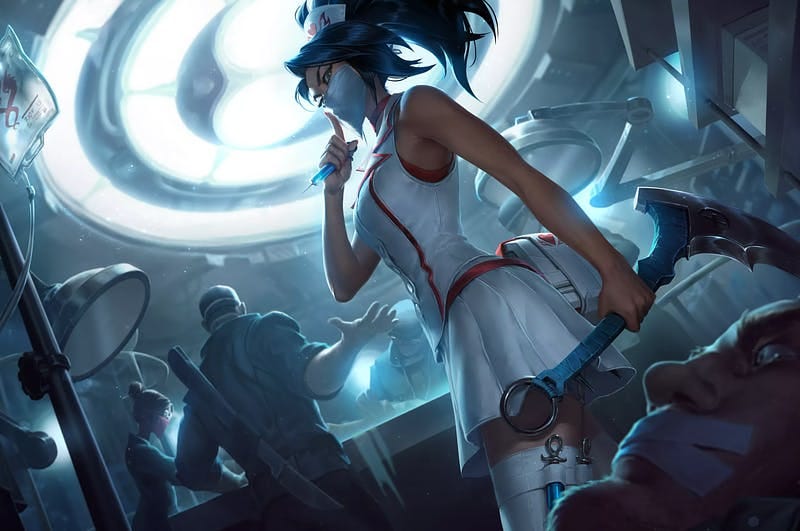
An uncivil war
A fringe group was kicked off of Discord this week. The "Boogaloo bois" seek to precipitate a second civil war, drawing support from white-nationalists, anti-government extremists, and active-duty members of the military. These skilled service members have offered their expertise to the violent group. Since the group's deplatforming on Discord, they have absconded to r/citizenslibertyorg.
The My Little Pony fandom is riddled with white-supremacists. More here
Machine learning can help prove war crimes, combing through years worth of footage in a matter of days. More here
Tech is overwhelmingly white and Asian. Still. More here
Disease X, Y, Z
The coronavirus pandemic is not a singular event. It is the product of human encroachment on wild areas, putting us into closer contact with animals and the diseases they produce. To prevent further zoonotic outbreaks, potential viruses must be cataloged and observed. The Global Virome Project, proposed in 2018, plans to do precisely that, but the $4B required has yet to be supplied by any sufficiently lucrative organizations.
South Asia has logged relatively low Covid-19 rates. That's because of inadequate reporting, not genetic differences, or climatic mitigation. More here
Men are at greater risk of dying from the coronavirus, except in India. No one's sure why. More here
Microsoft is permanently closing all retail stores. More here
Detour
With the markets roiled by further outbreaks of infection, gold prices soared this week, hitting a high of $1771.05 per ounce. That brings to mind the story of the honest sewerman.
In 1836, the Directors of the Bank of England began receiving a series of anonymous letters. The mischievous epistolist claimed to have access to the gold bars stored at the vault but gave little more information. To add to the intrigue, he offered to meet the Directors in the vault, at a later date.

On the night in question, the Directors gathered, surrounded by glistening bullion. A rummaging sound was heard beneath their feet, and all of a sudden, a man climbed out of the floorboards. He was a local sewer worker, commissioned to make repairs. In the course of his restoration, he had stumbled upon a pathway that led directly into the vault.
After confirming no gold had been stolen, the Directors rewarded the sewerman with £800 for his honesty. Adjusted for inflation, that equates to £80,000 in 2020.
Jobs
VC Associate - Initialized - NYC, SF - Apply here
VC Associate - SeedInvest - NYC - Apply here
Associate Director - IAC - NYC - Apply here
Chief of Staff - LendingPoint - NYC - Apply here
VC Associate - The Engine - Boston - Apply here
VC Associate - Anonymous - SF - Apply here
Climate Strategy - Stripe - SF - Apply here
Chief of Staff - Cue Health - San Diego - Apply here
VC Intern - Spark - Remote - Apply here
VC Intern - Samsung Next - Remote - Apply here
Puzzler
I am a four-letter word, always done tomorrow. Without the "tea," so comes the ultimate sorrow. Without the "eye," I owe you some money. Taken all together, I allow no sugar, no nectar, no honey. If it is me that you choose, you can never win, only lose.
What am I?
This stumped me. As always, clues given to those curious enough to message. All guesses welcomed, no matter how speculative.
SEV, a beloved winner of this section, hit the nitro this week, speeding to victory. He narrowly beat NMT and Jimmy S, two competitors who have written their own names into The Generalist's record books. A tighter winner's circle reflects the trickiness of last week's question:
How many seconds are there in one year?
While the temptation is to answer 31,536,000, the "correct" answer was 12 — the number of second days (January 2nd, February 2nd, and so on) per annum. SEV and NMT were quick to add that if the twenty-second day of each month counted, the correct answer would be 24, of course. Well played, across the board.
Thank you for reading. If you enjoyed today's edition, consider sending it to someone serene and thoughtful and relatively immune to dopamine games. Wishing you time to think and rest this Sunday.
